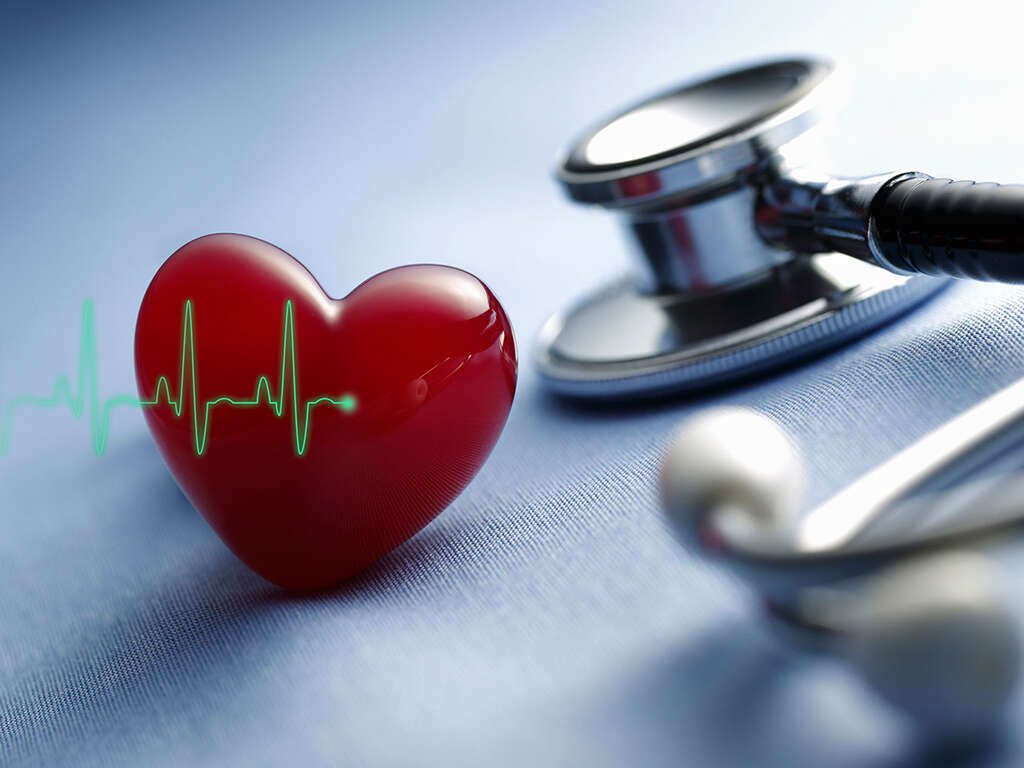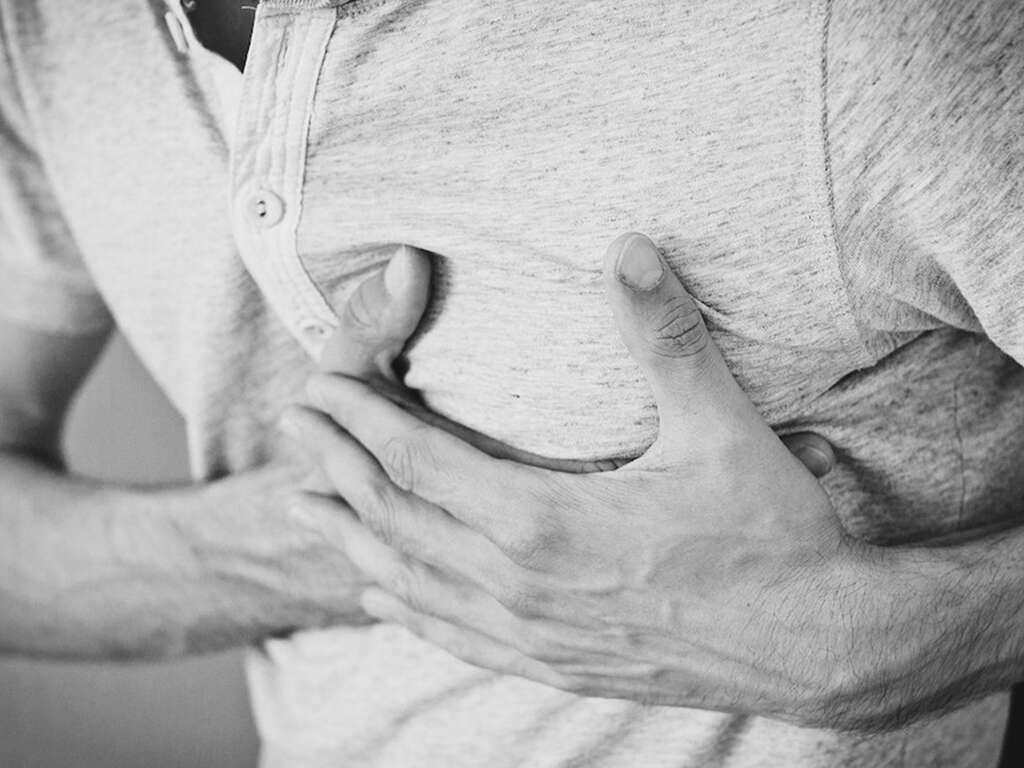10 Irregular Heartbeat Symptoms
 Article Sources
Article Sources
- 1. 'Heart arrhythmia.' _Mayo Clinic_, mayoclinic.org/diseases-conditions/heart-arrhythmia/symptoms-causes/syc-20350668
- 2. Jeffrey Luebbert, MD: 'That Seemingly Innocent Heart Flutter That You're Feeling, Is It Serious?' _Penn Medicine,_ June 1, 2016, pennmedicine.org/updates/blogs/heart-and-vascular-blog/2016/june/heart-flutters
- 3. Richard R. McCurdy, Jr., MD, FACC: 'Heart palpitations: When should you worry?' _Main Line Health_, January 23, 2018, mainlinehealth.org/blog/heart-palpitations-when-should-you-worry
- 4. 'Why Atrial Fibrillation (AF or AFib) Matters.' _American Heart Association_, heart.org/en/health-topics/atrial-fibrillation/why-atrial-fibrillation-af-or-afib-matters
- 5. William H. Blahd Jr., MD, FACEP; Adam Husney, MD; Kathleen Romito, MD: 'Dizziness: Lightheadedness and Vertigo.' _PeaceHealth_, February 26, 2020, https://www.peacehealth.org/medical-topics/id/dizzi
Irregular heart beats develop when the heart beats too fast, too slow or skips beats. When the heart beats faster than normal, it’s called tachycardia, and when it beats too slowly, it’s called bradycardia. Symptoms that require immediate medical attention include shortness of breath, dizziness, chest pains and syncope.
When originating in the upper chambers of the heart, tachycardia may be further categorized as atrial fibrillation, atrial flutter, supraventricular tachycardia and Wolff-Parkinson-White syndrome. Ventricular tachycardia, ventricular fibrillation and Long QT syndrome are examples of conditions where the heart beats too quickly in the lower chambers.1‘Heart arrhythmia.’ Mayo Clinic, mayoclinic.org/diseases-conditions/heart-arrhythmia/symptoms-causes/syc-20350668
1. Fluttering Sensation
People describe this symptom in various ways, such as rapid fluttering, flip-flopping, beating too quickly and skipping beats. The fact is, most people experience this one or more times in their lives. When it’s a fleeting sensation, this irregular heartbeat symptom is likely not the sign of anything serious.2Jeffrey Luebbert, MD: ‘That Seemingly Innocent Heart Flutter That You’re Feeling, Is It Serious?’ Penn Medicine, June 1, 2016, pennmedicine.org/updates/blogs/heart-and-vascular-blog/2016/june/heart-flutters
However, prolonged or repeated heart palpitations may indicate that the individual has an arrhythmia caused by an underlying medical condition. Even in the case of a benign arrhythmia, the individual may need medical treatment to address their unwelcome symptoms. Regardless, they should see a medical professional for an evaluation to determine the cause.
2. Racing Heart
People experience abnormal or irregular heartbeat conditions in different ways. In fact, some people have no symptoms at all. The feeling of a racing or pounding heart is one common symptom. Essentially, it feels like the heart is beating too fast.
This can be a sign of some type of tachycardia, but anxiety, stress, nicotine, alcohol and caffeine are also possible culprits. If there are other irregular heartbeat symptoms, it may be time to see a doctor.3Richard R. McCurdy, Jr., MD, FACC: ‘Heart palpitations: When should you worry?’ Main Line Health, January 23, 2018, mainlinehealth.org/blog/heart-palpitations-when-should-you-worry

3. Chest Discomfort
Chest pain, tightness, pressure and other unusual sensations may be caused by an irregular heartbeat. Some people say it feels like a tight band wrapped around their chest, while others have more localized pain or discomfort.
Unfortunately, many individuals mistake these serious symptoms as heartburn or some other benign issue. Whether it turns out to be arrhythmia or a cardiac event, when someone has these types of symptoms, emergency medical attention is required.
4. Shortness of Breath
Gasping for breath, air hunger and shortness of breath are signs of many different conditions. A medical problem that causes irregular heartbeats is one possibility, but a complete medical history can help in the diagnosis.
Individuals should monitor any episode of breathing difficulties to help their medical provider diagnose any potential diseases or conditions. Some bradycardia issues can cause shortness of breath, as can a range of tachycardia conditions.

5. Anxiety
Anxiety, nervous uneasiness and jitteriness can indicate an irregular heartbeat issue. Because there are also so many other potential causes, a full medical examination and workup is necessary for a diagnosis. Individuals who have periods of anxiety with no known cause should not ignore a possible physical cause.
This is especially true when these individuals are experiencing other arrhythmia symptoms. Often, the physical sensations of an irregular heartbeat, such as fluttering and racing, can bring on anxiety.
6. Fatigue
Unexplained fatigue, exhaustion and lethargy may signal the presence of a medical condition. In the case of an irregular heartbeat, the body may not be getting an adequate supply of blood to the body’s tissue. That can cause fatigue.
Moreover, fluid build-up in the lungs is a condition called pulmonary edema, often caused by heart failure, which can be tied to arrhythmias.4‘Why Atrial Fibrillation (AF or AFib) Matters.’ American Heart Association, heart.org/en/health-topics/atrial-fibrillation/why-atrial-fibrillation-af-or-afib-matters Medical intervention is recommended to treat the underlying heart condition.

7. Dizziness
Feeling lightheaded, having a sense of vertigo or experiencing overall dizziness may suggest an irregular heartbeat. Although, there are several other potential causes, such as allergies, stress, dehydration and hyperventilation. Even menstruation and some drugs can cause these symptoms.
Someone having these issues can take their pulse to learn whether their heartbeat is abnormally high. Infrequent episodes are probably no need for worry.5William H. Blahd Jr., MD, FACEP; Adam Husney, MD; Kathleen Romito, MD: ‘Dizziness: Lightheadedness and Vertigo.’ PeaceHealth, February 26, 2020, https://www.peacehealth.org/medical-topics/id/dizzi But recurring issues with these symptoms should be reviewed with a medical professional.
8. Perspiring
When combined with the feeling of a rapid or racing heartbeat, excessive sweating may be a sign of arrhythmia. The person experiencing these symptoms should seek medical treatment.
The doctor will likely need to rule out anxiety and panic disorder, as those conditions can also cause sweating and rapid heartbeat. But atrial fibrillation is one of the irregular heartbeat conditions that may be responsible for these and other unwelcome symptoms.

9. Syncope
Syncope is the medical term for loss of consciousness or fainting. The person is typically unconscious for a very short period. Both bradycardia and tachycardia can cause syncope, which results from insufficient blood flow to the brain.
Dizziness or lightheadedness often accompany fainting spells caused by an irregular heartbeat. With bouts of arrhythmia, the drop in blood pressure is often very severe and abrupt. This leads to the sudden loss of consciousness, and medical intervention should occur.
10. Lack of Symptoms
Some people with a serious condition that causes irregular heartbeat never experience symptoms. That fact highlights the need to have regular check-ups and physicals. This becomes increasingly important as people age.
Some risk factors for an irregular heartbeat or arrhythmia include high blood pressure, coronary artery disease, diabetes, sleep apnea and thyroid issues. People who smoke, drink excessively, use drugs or have a genetic history of heart disease should be especially vigilant.










